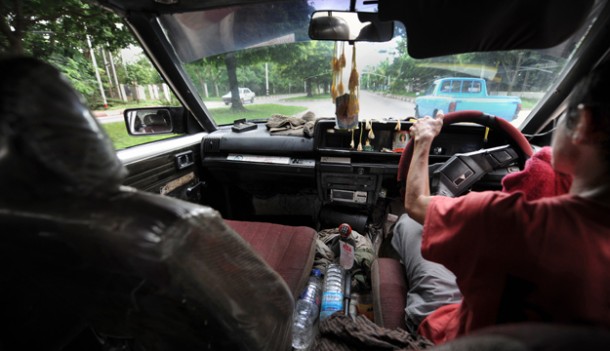An official from Burma’s state-run Myanmar Oil and Gas Enterprise (MOGE) has announced that the government will no longer issue CNG (Compressed Natural Gas) licenses for vehicles—either public or private—as it strives to withhold all natural gas supplies for electricity.
To compensate for any shortfall, he said, the government intends to increase imports of octane, premium diesel and diesel.
“The government is going to keep CNG as a supporting source of electricity in urban areas,” said an executive officer from MOGE. “Almost all our imported cars now run on octane fuels, so CNG will not be needed for vehicles in the future.
“The government will substitute the fuel which is produced nationally with imports of octane, diesel and premium diesel,” he added.
Over the part year, many motorists in Burma have complained that they are unable to acquire CNG licenses and fittings for their vehicles since a substitution policy started in late 2011.
According to Tin Aung, a taxi company owner in Rangoon’s Thingangyun Township: “When the government announced it was abolishing the old cars and importing new ones, they said they would only issue CNG licenses to those cabs which were CNG fitted. I had to pay 1.2 to 1.5 million kyat (US $1,400 to $1,750) for each CNG gas tank to be fitted in every taxi. But now it has been nine months and I still haven’t received a license.”
But when Tin Aung and other motorists contact the MOGE to enquire why the licenses are taking so long to issue, they say they are invariably told that “the minister is too busy” to sign the CNG licensing papers.
According to MOGE data, more than 50,000 taxis and taxi company owners are currently waiting for CNG licenses.
In mid-2010, the government privatized 260 MPPE filling stations. Since then, the price of fuel has increased steadily.
Sources in Rangoon said that the private filling stations are selling their entire quota of fuel every month (One car owner can buy only two gallons of gasoline per day).

















